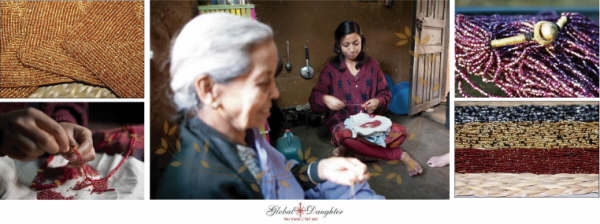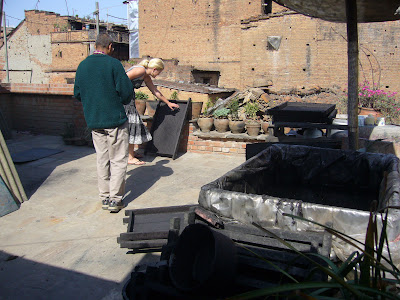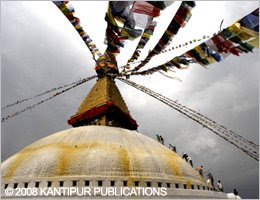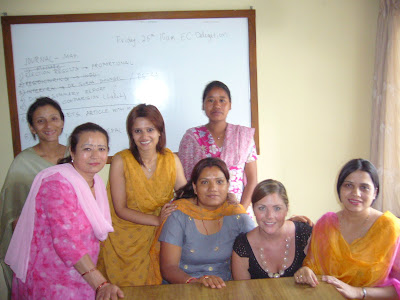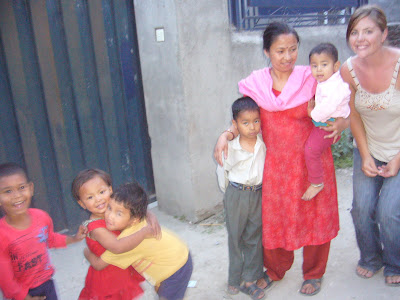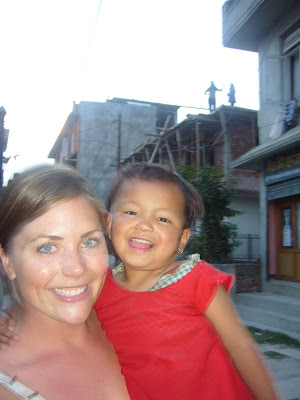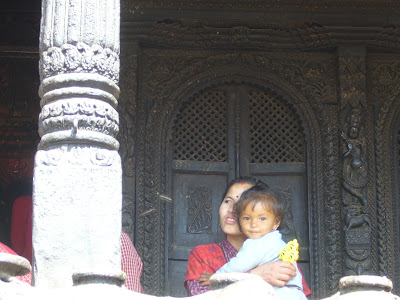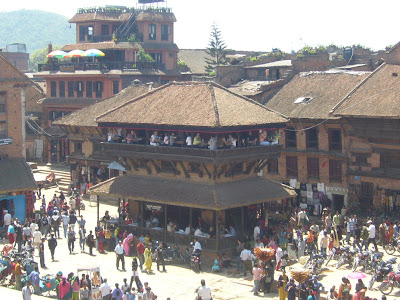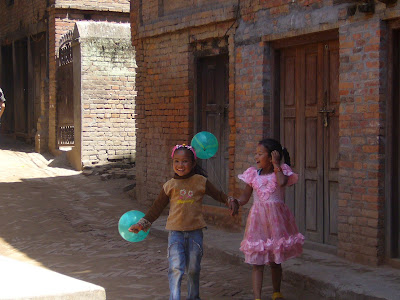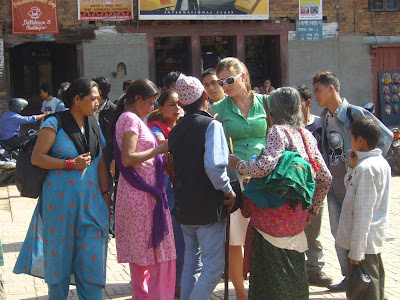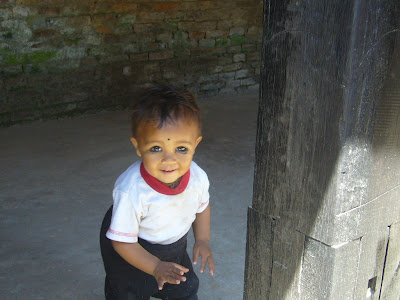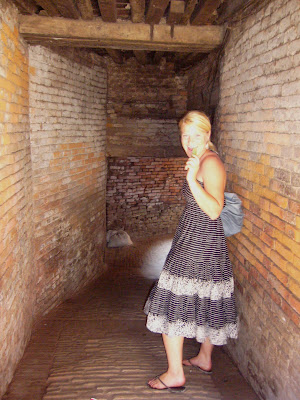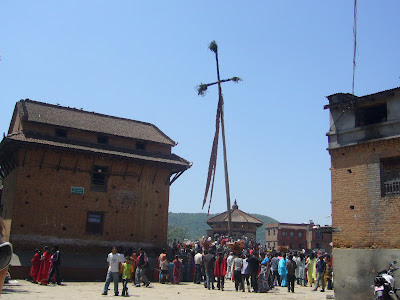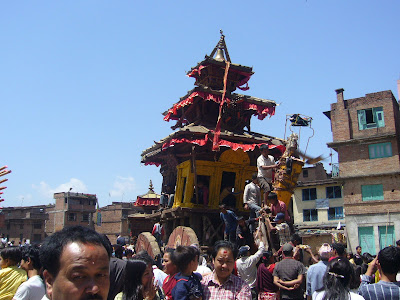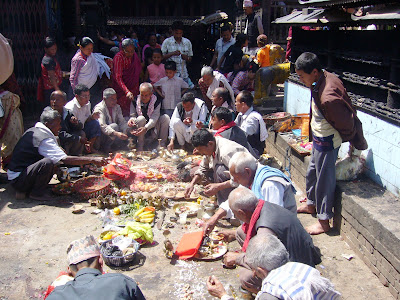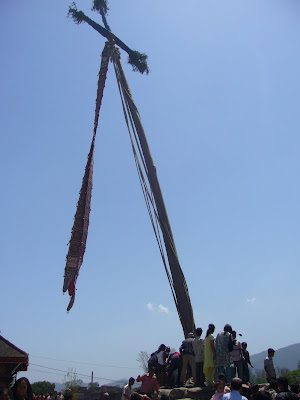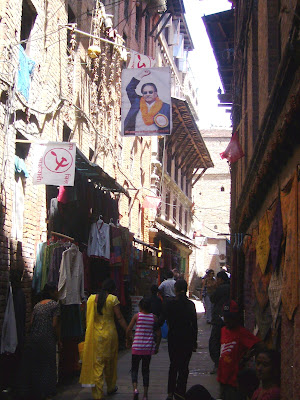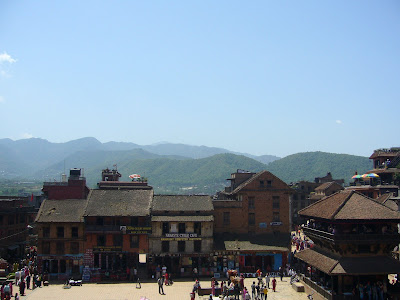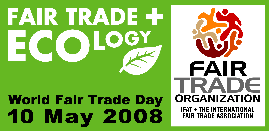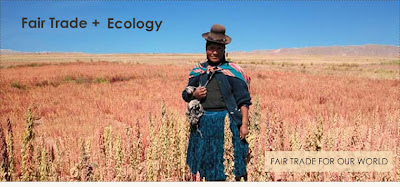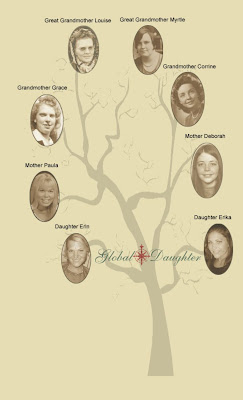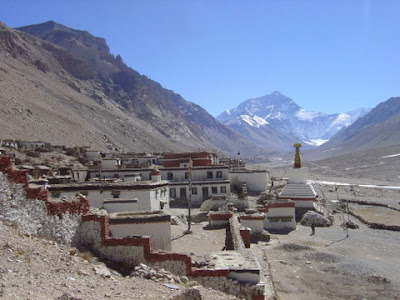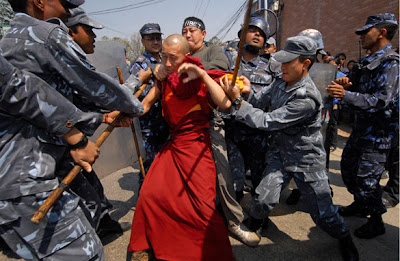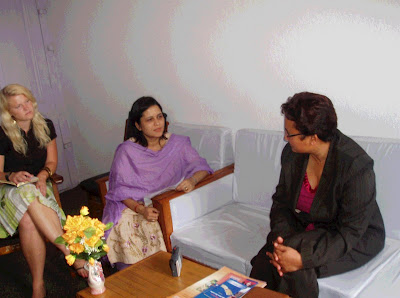
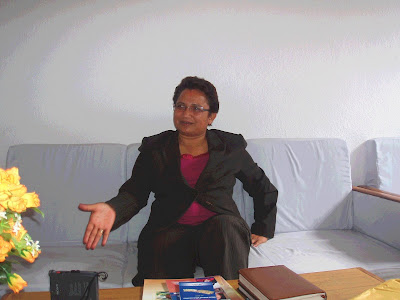
I took this interview with two of my colleagues from Women in Good Governance at the Minister's office just after her election win. It was conducted in Nepali and has been translated into English for WIGG's monthly journal, "Women's Voice." I tried to ask her several questions in English, but she replied that she does not speak English because she is "from the jungle." I know she is well-educated and can speak English, but I also know the games that the Maoists play so I obliged and she responded in Nepali. She came across very collected and did not raise her voice or wave her fists like many of her male Maoist counterparts. She is the highest official in the country to protect women's rights and, as she explains in the interview, she has not been given the tools to do her job effectively. She does say some provactive things in this interview (compared to other Nepali politicians) and shows more passion and conviction in her responses than other women leaders I have interviewed. Keeping in mind her party carried out an insurgency in the country that has killed over 13,000 people and terrorized an otherwise peaceful nation.
Ms. Pampha Bhushal is a central committee member of Communist Party Nepal/ Maoist and a newly elected member to the 601-member Constituent Assembly to draft the country's new constituion. She currently holds the portfolio of Minister for Women, Children and Social Welfare. In the following interview (excerpts) Ms. Bhushal expresses her views on the future government's programmes and policies, women's rights and other contemporary issues.
Q: The coming government is likely to be headed
by your political party, CPN-Maoist. What
programmes and policies does the party plan on
implementing in the new constitution?
The chief program on our agenda is to have the
country declared a republic at the first meeting of
the CA. The second important task is to prepare the
new constitution, because the election was held for
that purpose. Since the Nepali people have endorsed
the programs and policies we have laid down in our
party manifesto, we will frame a constitution which
will put an end to monarchy and feudalism. The
constitution will abolish a unitary feudal system of
governance, replacing it with federal states where
the underprivileged and exploited masses, tribes and
religions will enjoy rights to self determination.
Q: In your opinion, what are the major challenges facing the
country right now and how does your party plan
to go about overcoming them?
In terms of socio-economic development, as
compared to other nations in the world, we have
gone backwards by nearly 300 years. Thus, our party
has presented a 10, 20 and 40 year vision for all-around
development and economic
and social prosperity in Nepal. The
coming government will formulate
policies and plans based on this
vision and work towards providing
instant relief and implementing
changes for the people. We will
focus on controlling soaring prices,
curbing corruption and managing
shortages, which will in turn,
strengthen good governance, peace
and security.
Q: The relief in which you speak of, what kind
of relief will you provide the people once the new
government is formed?
Right now, the people are weighed down by spiraling
market prices. Taking advantage of the political
situation, black marketers are creating artificial
shortages to hike prices even further. The new
government will take immediate action against such
trends and search for avenues to create employment
opportunities. The new constitution might take 2 to
2.5 years to complete, but we will implement relief
programmes for the people as soon as possible.
At the moment, the national vaults are empty. Both
at the national and international level there are certain
people and organizations unwilling to assist us.
However, we are confident that the mandate given
to us by the people is enough to pull the country
through these hard times.
Q: Some political parties are still reeling after
their defeat in the elections. Some say the CPN/ Maoists
overwhelming victory was unexpected.
Do you agree?
No, I don't. Nobody familiar with the abc's of politics
would think so either. The last 12 years we were
engaged in an armed conflict. A total of 12,000
Maoist freedom fighters lost their lives. A total of
5,000 are still missing and more than 10,000 were
maimed or crippled. The CA Elections became a
reality only because of the sacrifice of our soldiers.
Until quite recently, the mere
mention of CA was enough to label
a person a terrorist. Demanding a
Constituent Assembly dragged the
party into difficult times.
Despite facing hurdles and having
targets on our backs, the Maoists,
supported by the Nepali people,
were able to push their demands
for a CA. The CA Elections,
therefore, were realized and backed
by the whole nation and as such,
the results can not be called "unexpected." In fact,
the election outcome corroborates the truth that we
actually came forward, armed with a victorious
campaign, to create a prosperous republican Nepal.
Q: Some political parties are being criticized for
not wholly supporting their female candidates
during the election process. Do you feel that your
party, CPN/M, extended full support for your
campaign?
Organizational discipline in our party is very strict.
We call it the "Iron Rules" and take care to abide by
it diligently. Thus, everybody agreed and supported
my candidacy. There was no opposition whatsoever.
Although I had a positive experience in this regard,
as a central committee member of the party I was
more privileged than some women candidates in the
Madhes region, for example. Some women were
asked to garner financial means and resources by
themselves, without the party, which is a very difficult
task for women in politics to accomplish.
Q: As far as your current role as Minister of
Women and Social Welfare, what are you doing
to address women's issues, which inherently cross
political party, ethnic and regional lines?
Nothing much can be done with the Ministry in its
present condition. Women's problems are common
throughout the country and we can vouch that CPN/M
is the only party which is genuinely concerned.
CPN/M believes in securing equal rights for women
by means of special provisions in the constitution.
Our party sent the maximum number of women
candidates to the elections. We also seek to provide
relief to women in practice, not merely in words.
We will see to it that the constitution ensures
opportunities for women at all levels of policy
function. Since women were the hardest hit during
the conflict, a special relief package must be designed
for them.
The Ministry can only implement programs in
accordance with government policy and plans. Right
now, the Ministry is nothing but a show piece for
the international community. Presently the Ministry
has programs running in only 1,800 VDCs. The
CPN/M is determined to introduce economic and
social welfare programs to empower women in all
VDCs, as well as to give the people a true sense of
democracy.
Q: What, in your opinion, is holding women back in the country?
They are deprived of rights to property and resources
and lack rights when it comes to reproduction. It is
important that women have reproductive rights and
the right to terminate relationships. Having children
should be left to their will and discretion; they should
never be forced by anyone else to have children.
They must never be made into machines for
producing children for men. The compulsion to beget
multiple children in hopes of a male heir is hazardous
to a woman's physical and mental health. The burden
of responsibility in bringing up these children is one
prominent factor that discourages women from
entering politics or other professions.
In addition to establishing productive rights, we feel
it is necessary to open day care centres everywhere
to give women the time and opportunity to do what
they want. Once we embrace the fundamental rights
of women, we will give them confidence to emerge
from their domestic bonds and become politically
active and financially independent.
